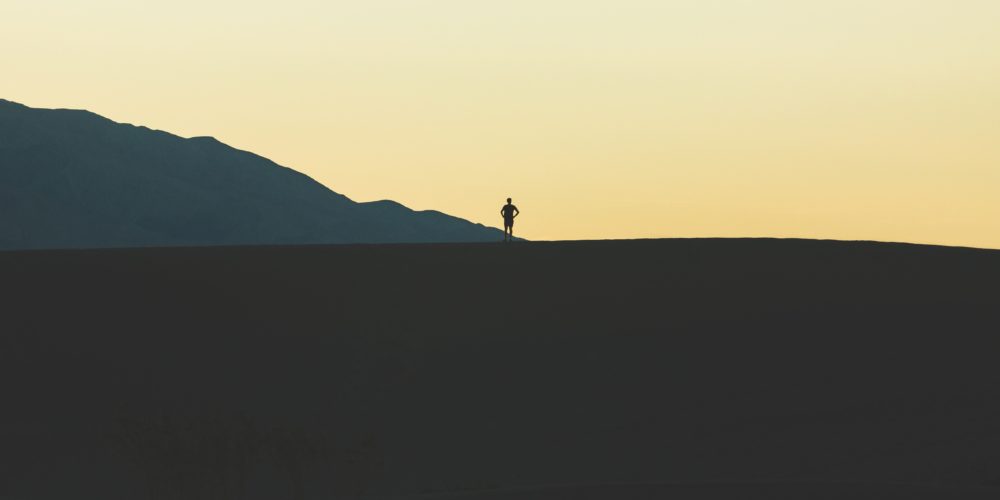Our future success comes from our past missteps

A memory flitted across my mind—something that happened a long time ago. I found myself cringing with embarrassment. Why was I like that? Why did I think behaving like that was acceptable? Why could I not have had the wisdom then to do things differently? If only my older self could take my younger self in hand…
But soon after the uncomfortable moment, I had a deeper thought: that this is good. It is good to look back on at least some parts of our pasts with embarrassment and regret. To do so proves two things: that we have lived, and we have learned.
We have, most of us, done some really dumb stuff in our lives. We have behaved badly; we have let people down; we have been arrogant or unthinking in our actions; we have been gullible and easily led; we have made foreseeable blunders; we have had questionable relationships; we have committed sometimes enormous errors of judgement.
And that’s just fine.
Why? Because that stuff can only be missing from your life for two reasons. First, that you never really took any risks or tried anything new out. We make mistakes because we take chances. Those who resolutely stay in their comfort zones, and who religiously colour within the lines set by others, perhaps minimise their blunders and embarrassments. They play safe, and their lives reflect that safety. These are not the people who will blaze trails or push out the boundaries. Their aim is to have lives of resolute predictability.
Those with a sense of adventure are rather different. They go into new situations with wide-eyed abandon; they know their limits by testing them. They follow the words of William Blake: “The path of excess leads to the tower of wisdom.” They learn through the pain of fingers burned.
There is a second type of person, though, who does not look back in embarrassment. This is the person who doesn’t believe they have ever done anything wrong. There are not many such people in the world, as such extreme egomania is rare; but they do exist, and unfortunately, they often get into positions of corporate and national leadership, where they become serial bullies and whiners. They cause much grief to those around them, but will never be seen admitting it.
For the majority of us, we must be comfortable with the lives we have led. If we made mistakes, it was because we took chances; if we had to retreat in shame, it was because we got ahead of ourselves. However, that should never take the form of empty self-justification. When contemplating our missteps of the past, the second part is also important—regret, and rectification. We must not look back with pride at our idiocies, or with lack of compassion at the people we have hurt.
Learning comes from lessons; lessons happen when we acknowledge things we did not know. Those who advance most as human beings are those with the self-awareness to know when they have screwed up, and what they must do to get better. They have lived full lives, yes; but they have also learned deep lessons.
A final thought on this from Otto von Bismarck, who pointed out that it is good to learn from experience, but it doesn’t always have to be our own experience. The great thing about humanity is that we learn together, and through one another. That means we do not have to make every damn mistake in life personally; we can also observe the effects of experiences on others, and learn without burning our own fingers.
How to do this? From the simple practice of curiosity. Being interested in the lives of others, being observant of human activity all around us, being involved in the tribulations of other people, and offering to help them—these are all paths to learning by experience. Not idle curiosity, mind; not leering voyeurism; but creative curiosity. To learn only from your own experiences is to learn just a very small subset of what is actually possible.
Our curiosity should also come from stories. If you have a disdain for books, you are passing up the opportunity to learn from about human achievement and human error. Our greatest writers have documented not only richly insightful reflections and records, but also a vast treasury of novels—and movies, and television series—that allow us to grow without leaving our seats. If we can look away from everyday pulp fiction and find these insightful depictions of human experience, we can only become richer.
Let us embrace all our experiences—and those of our human brethren— learn the key lessons, and move on. The past is, after all, done and gone. All that we can carry into the future is the wisdom that the past has instilled in us.
(Sunday Nation, 2 October 2022)

Buy Sunny Bindra's new book
The X in CX
here »
Popular Posts
- NY’s wake-up call to the old guardNovember 9, 2025
- Save your strength for repairsNovember 2, 2025
- How to listen, really listenNovember 16, 2025
- Empathy is the missing code in CXOctober 26, 2025
- Use AI, but don’t lose youOctober 19, 2025















